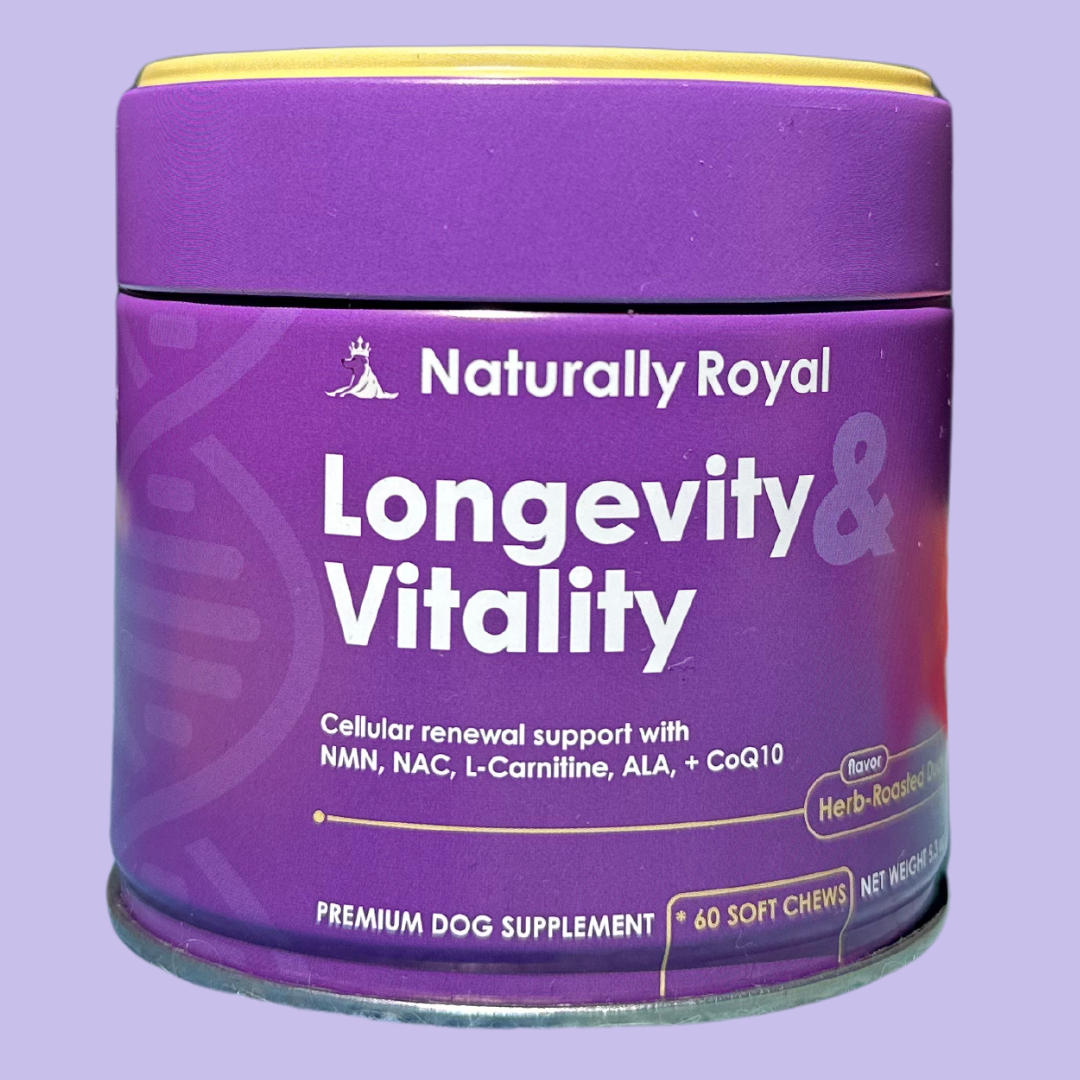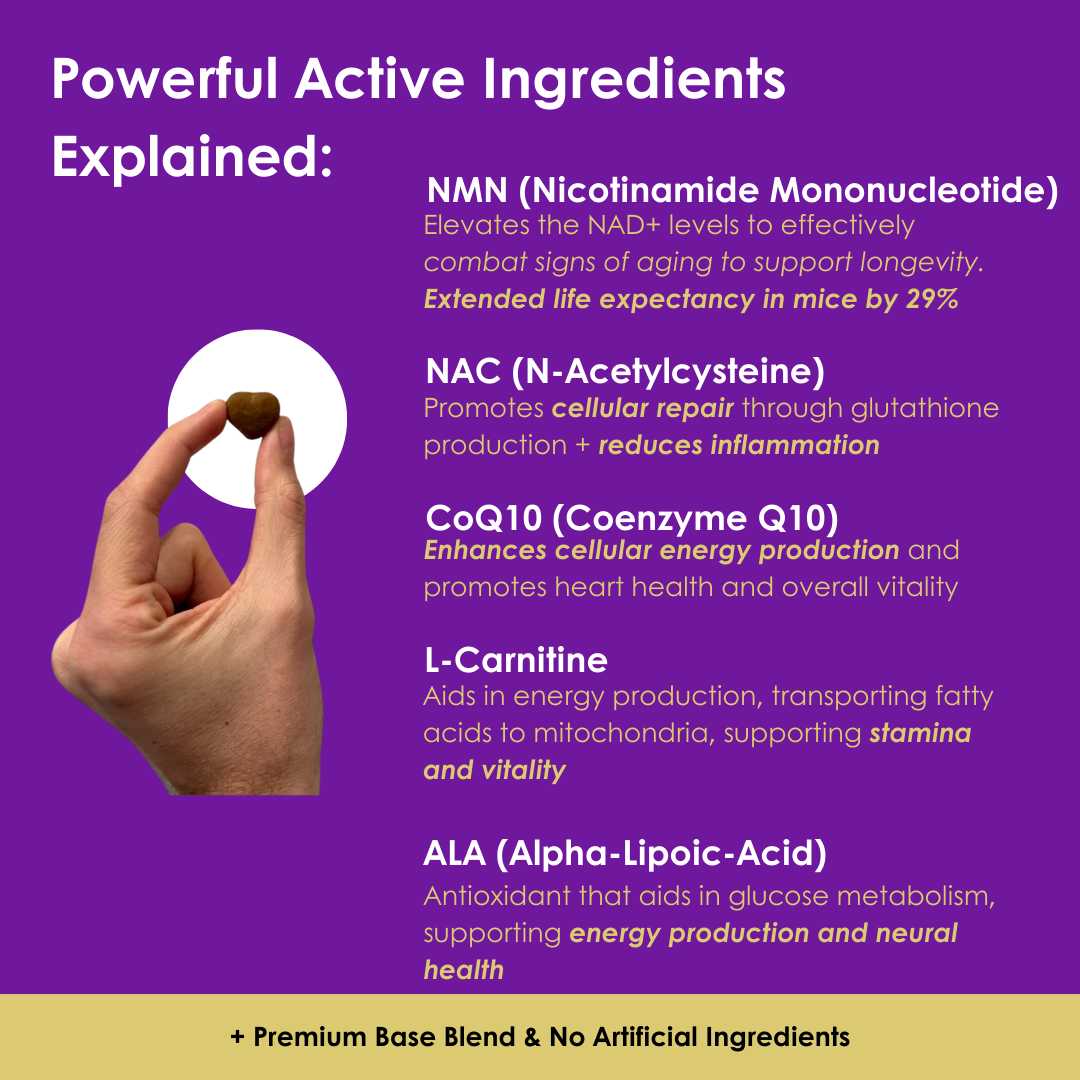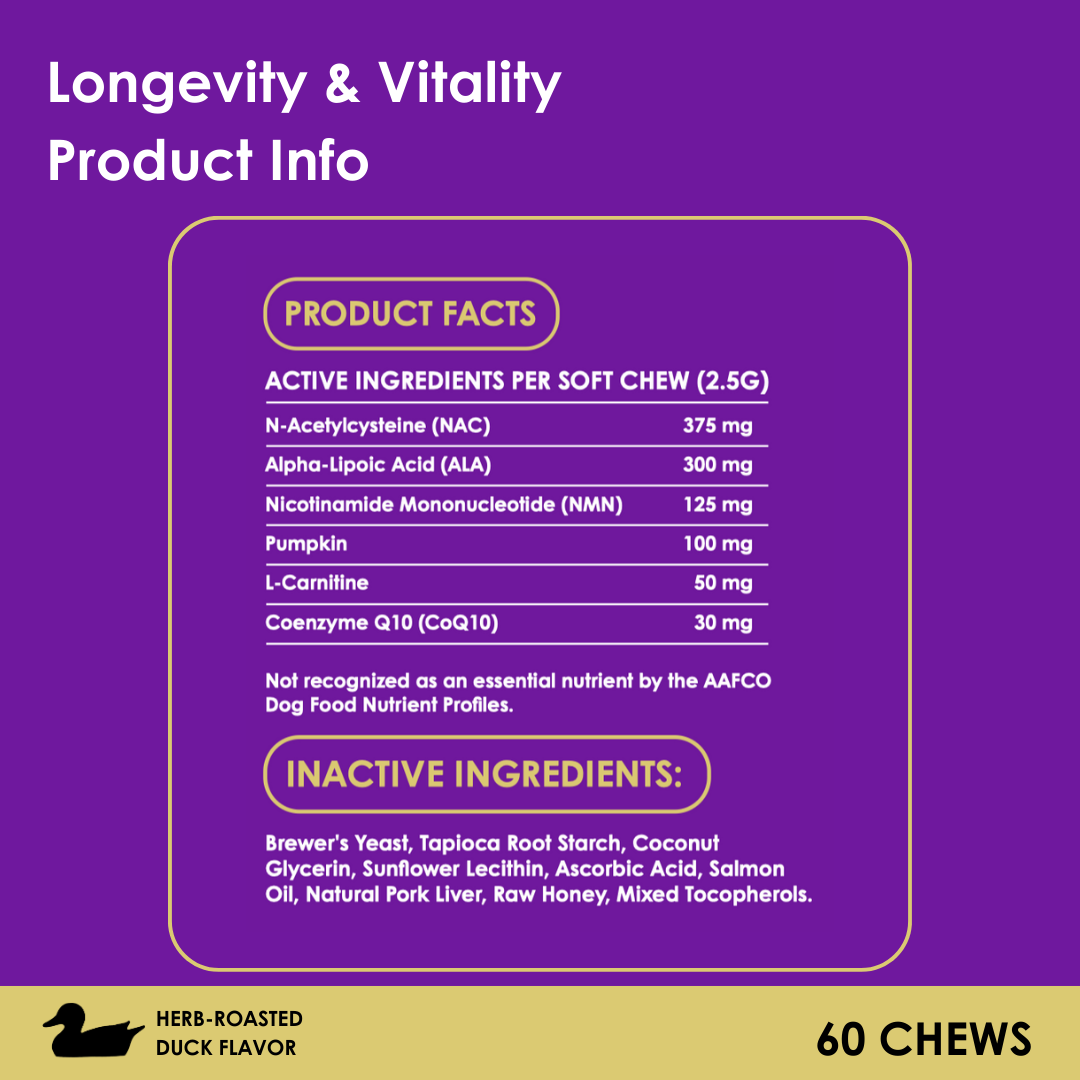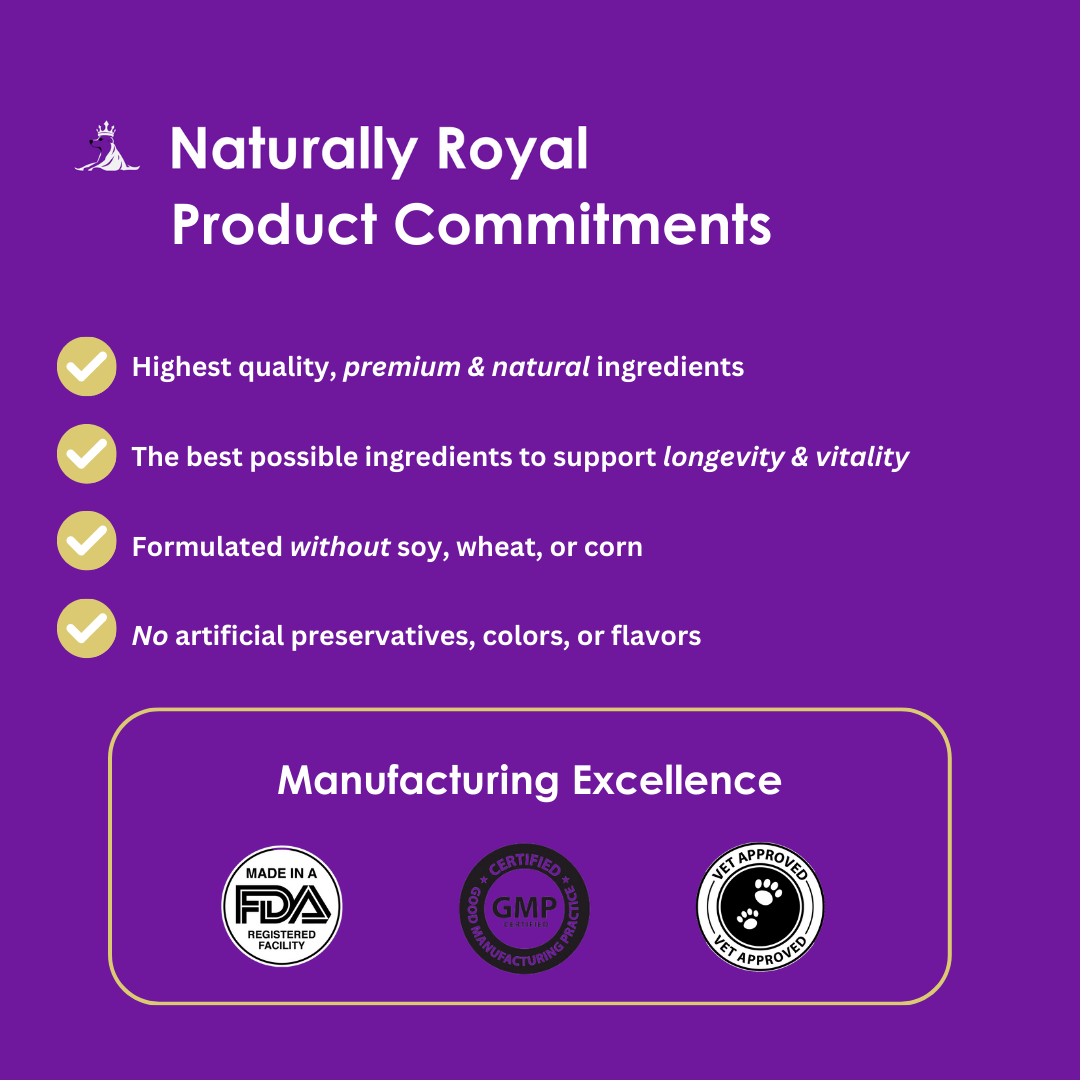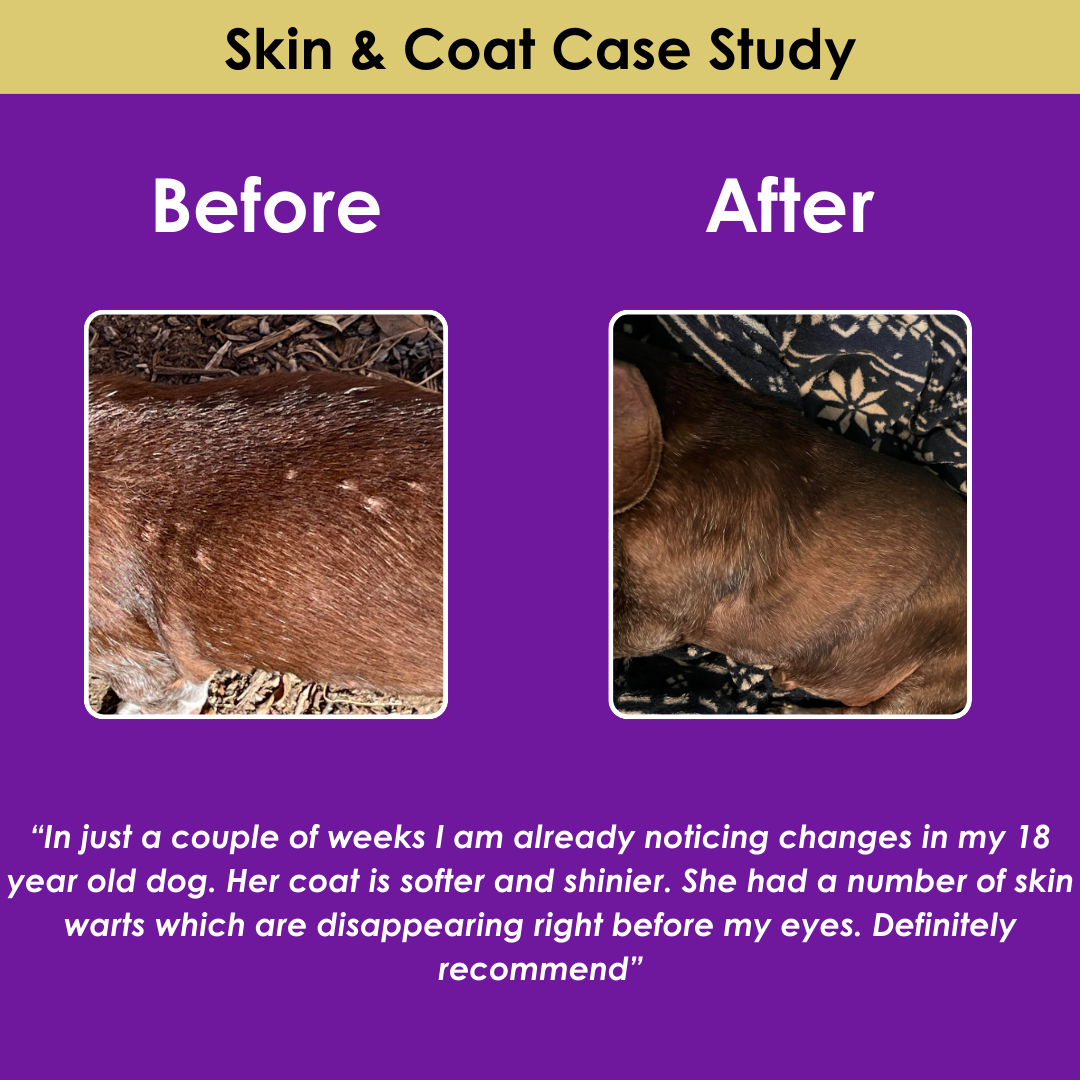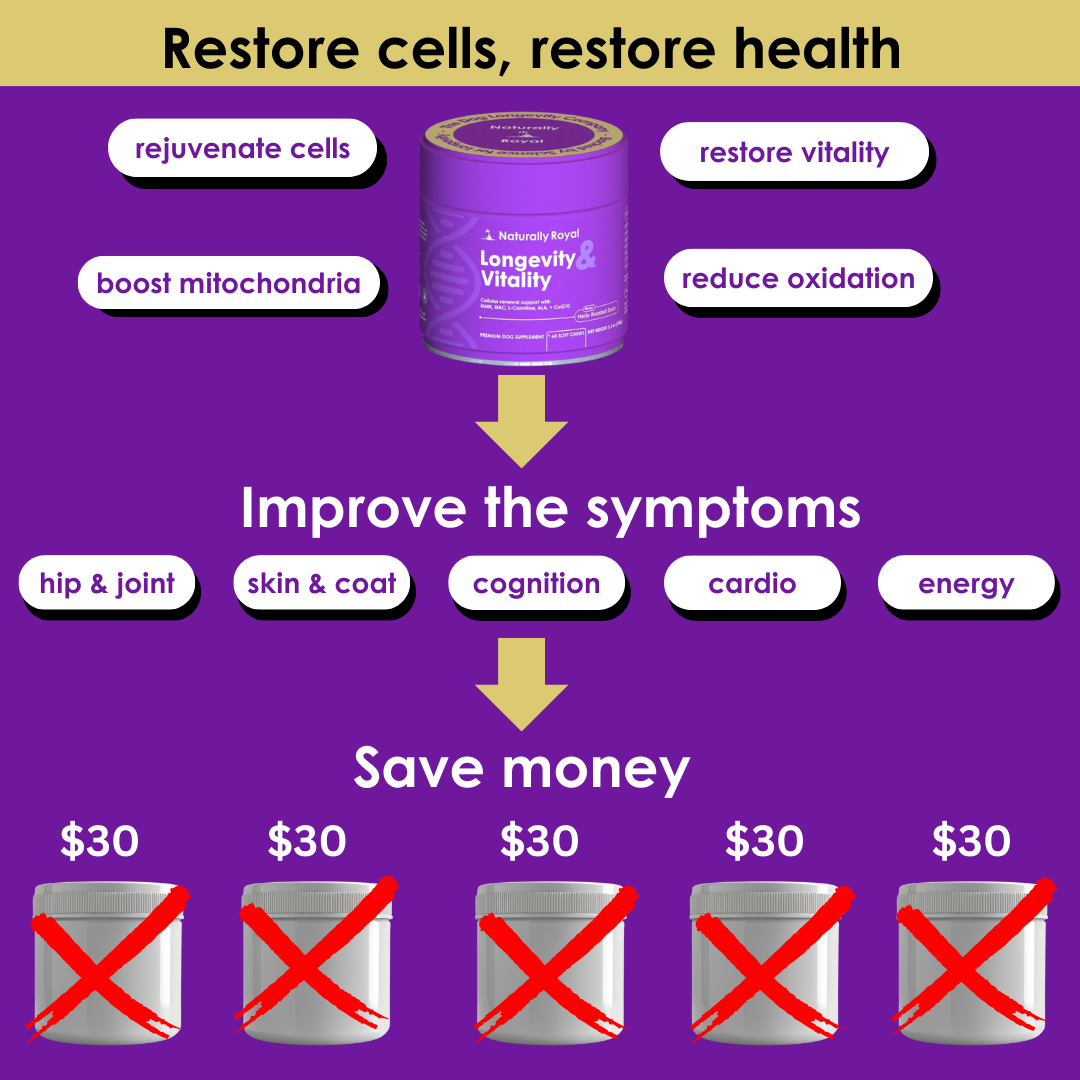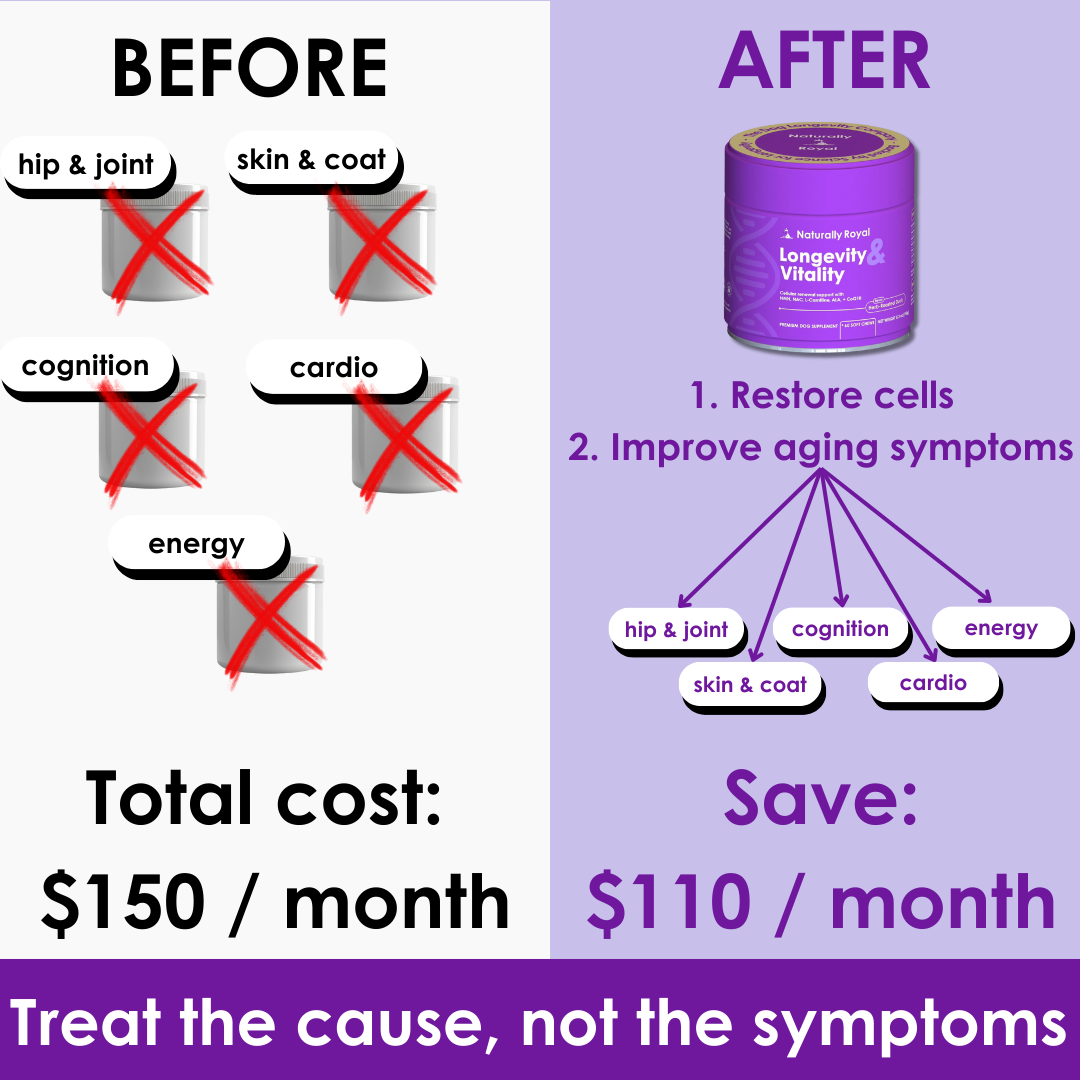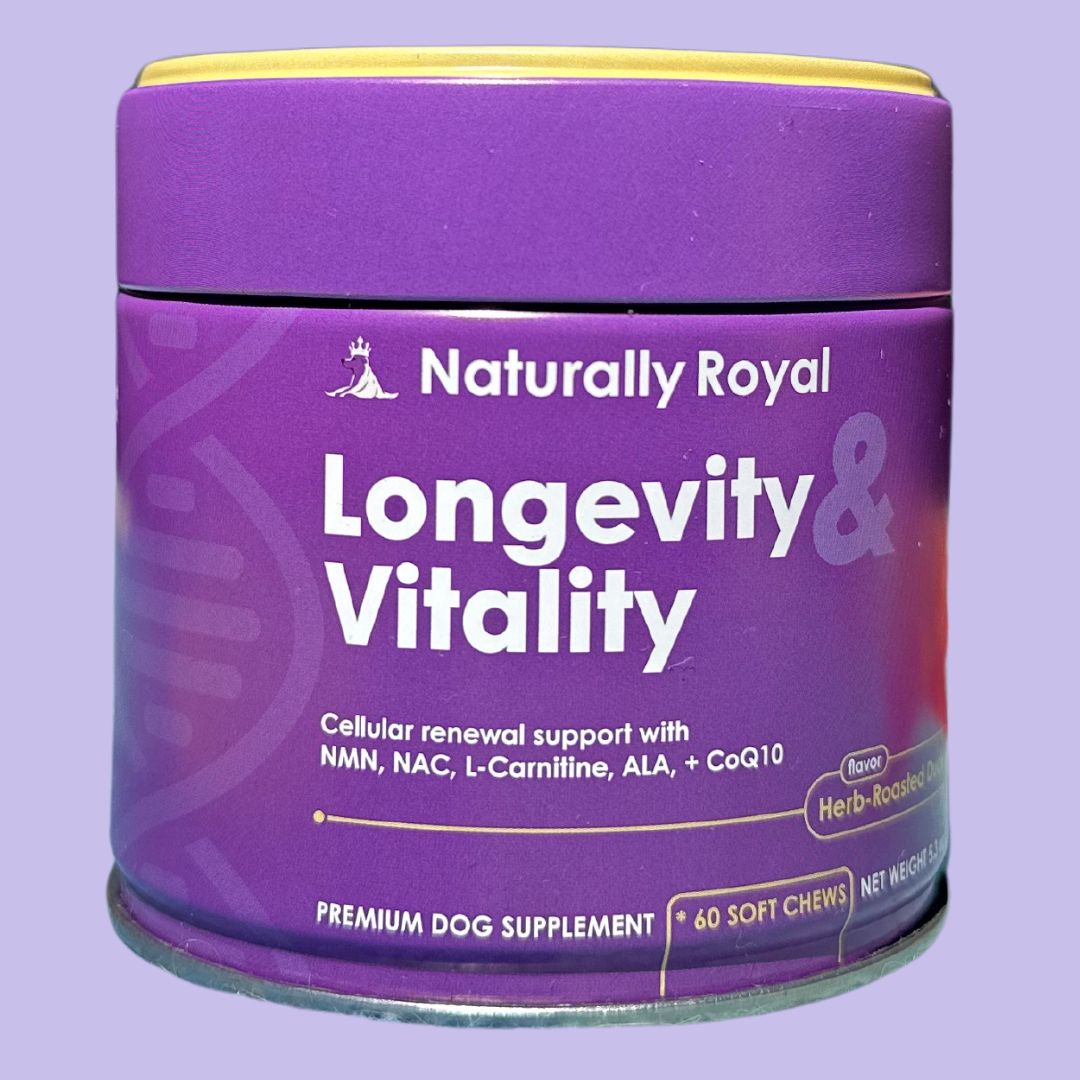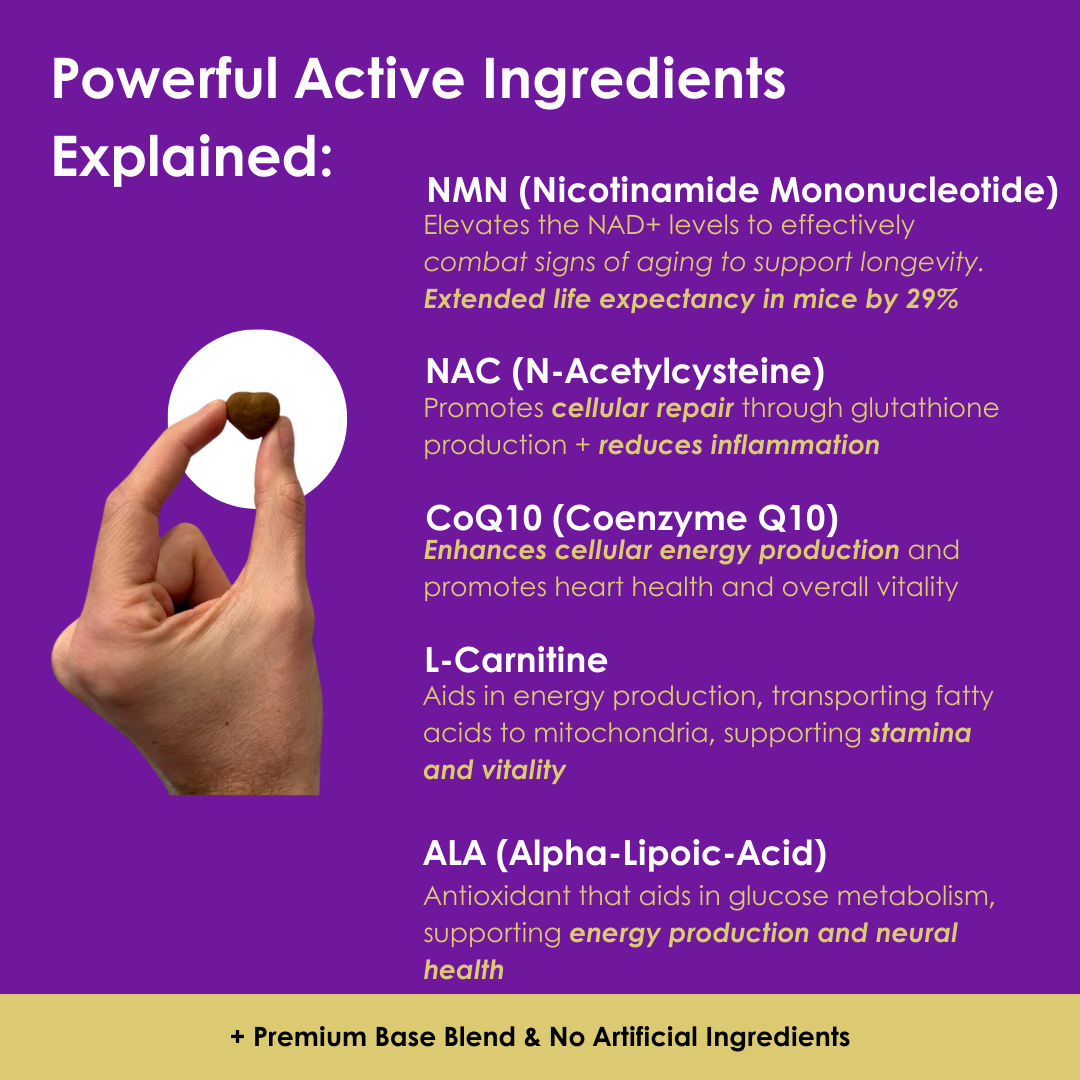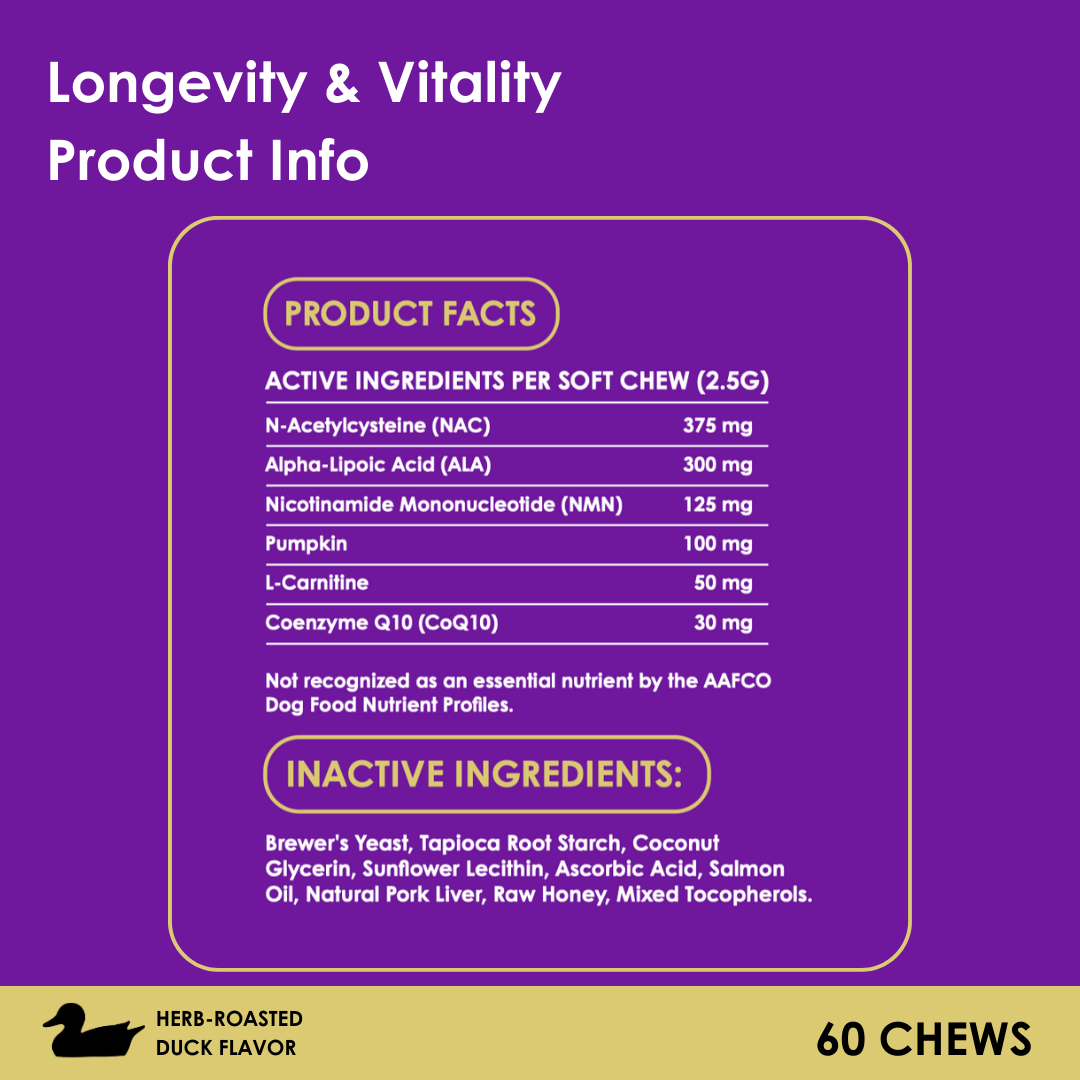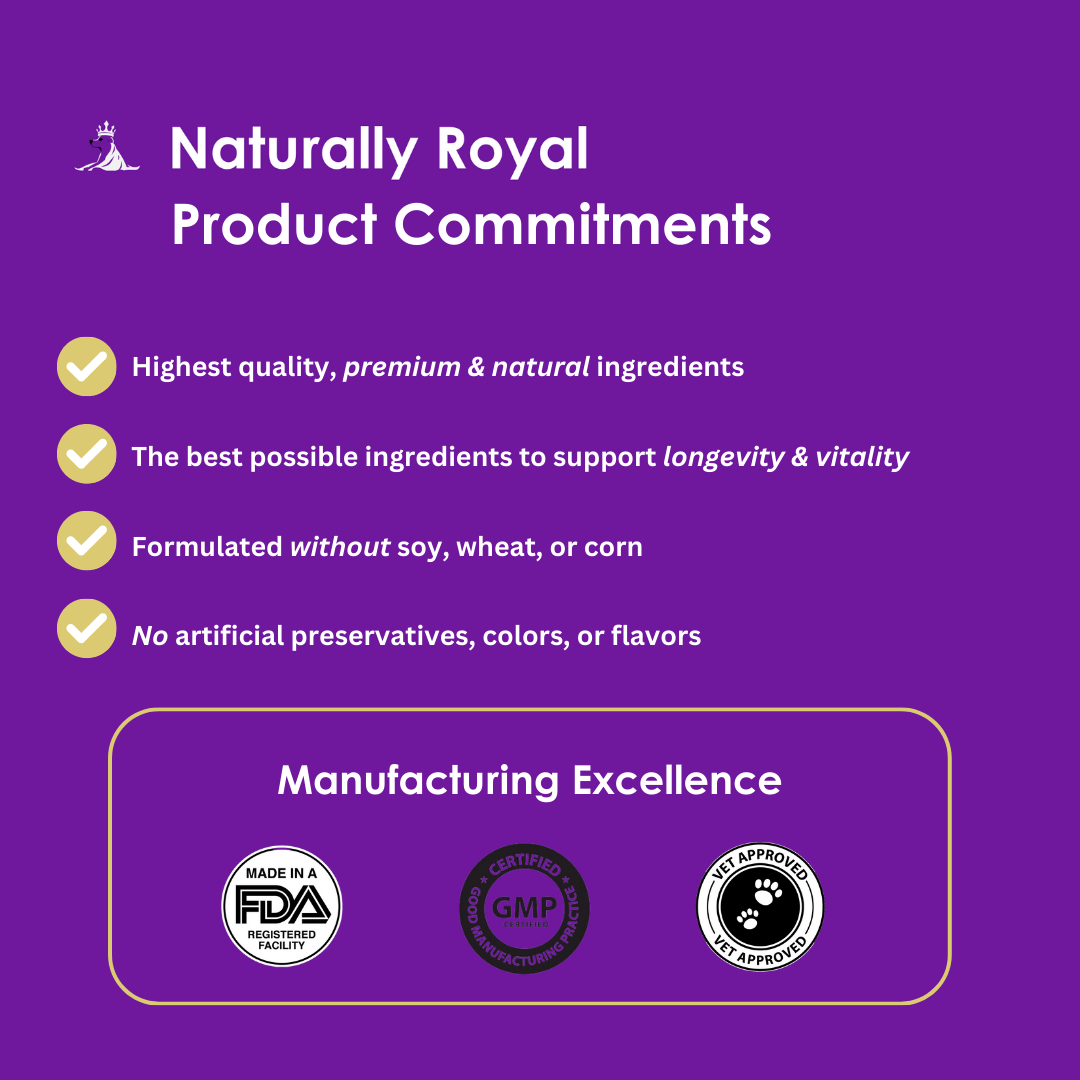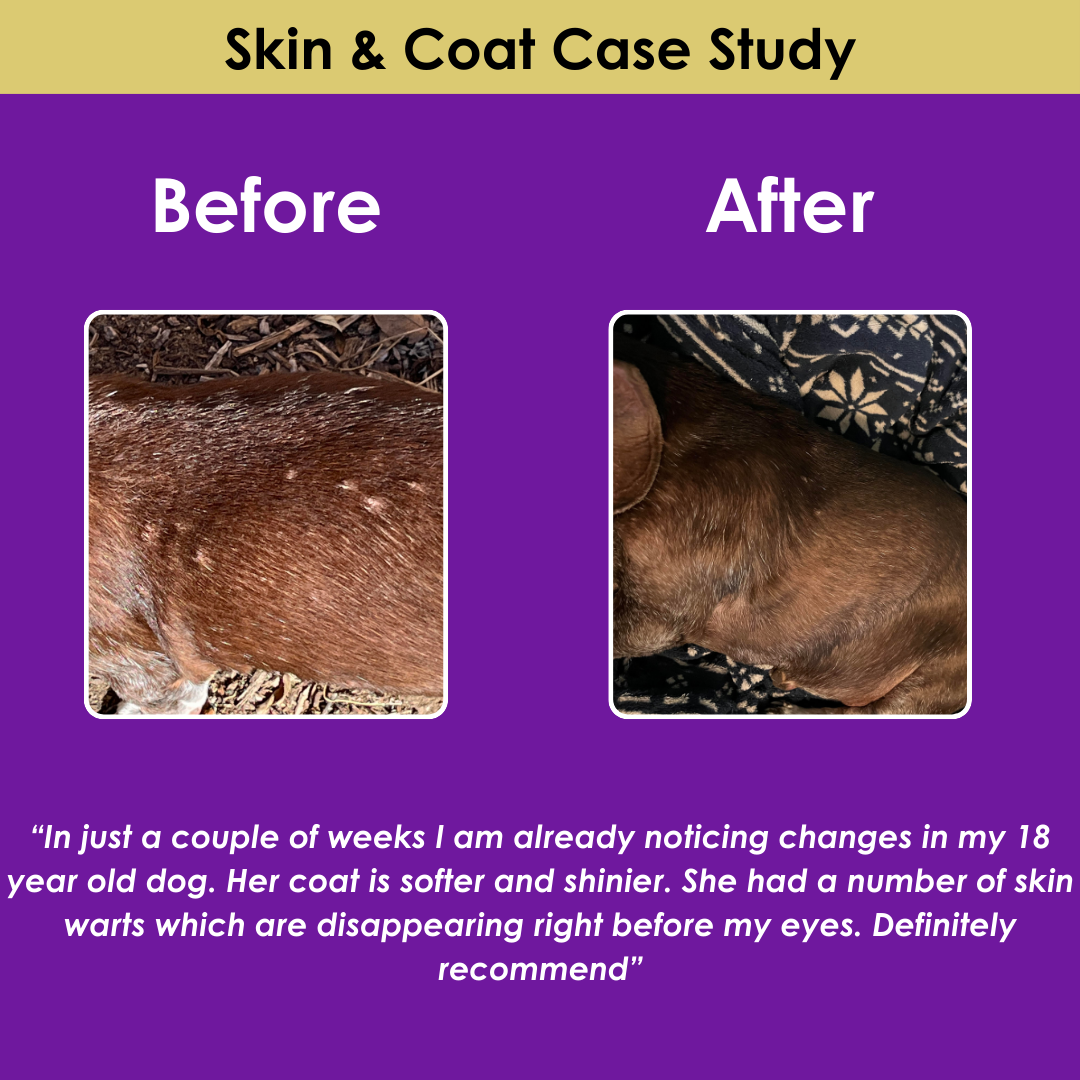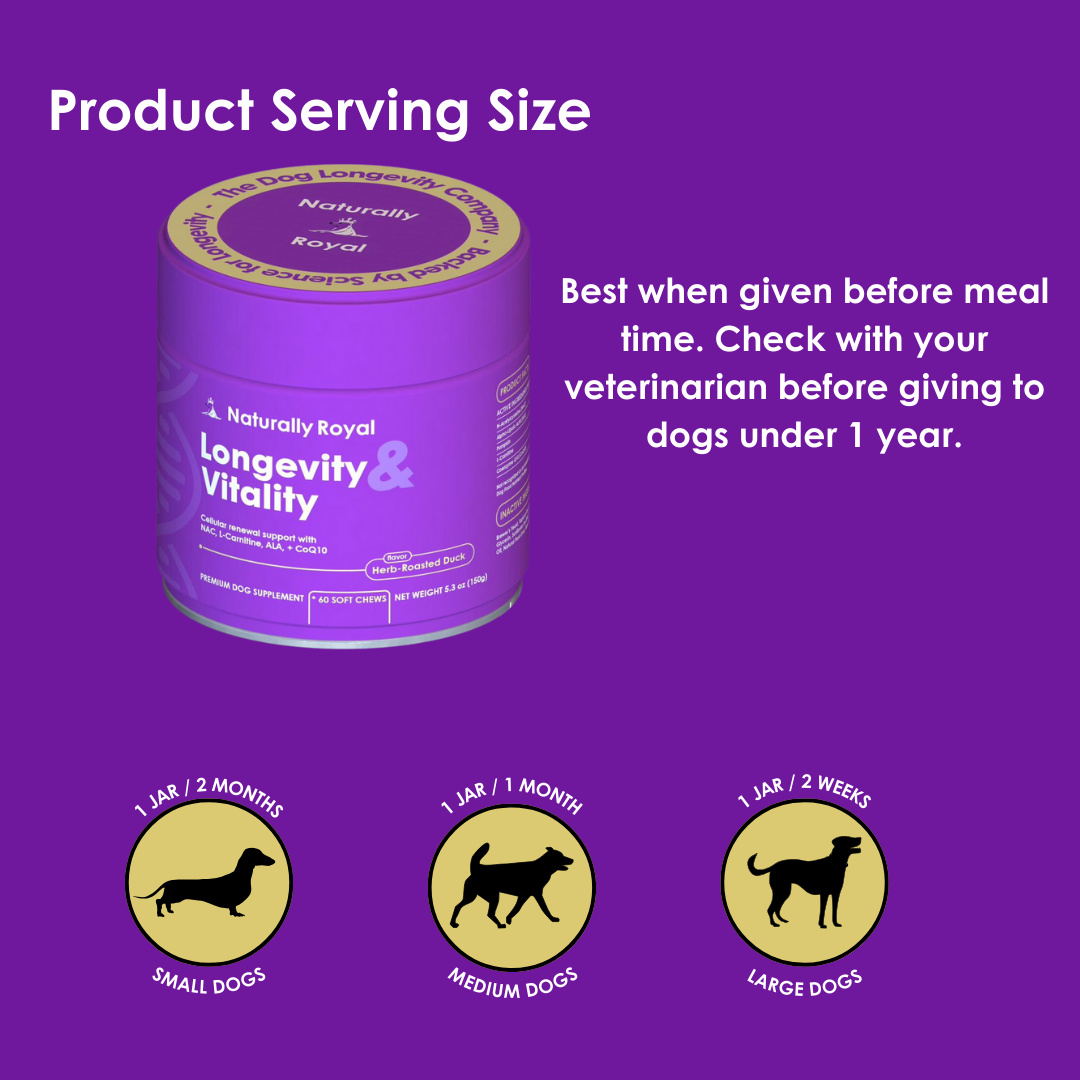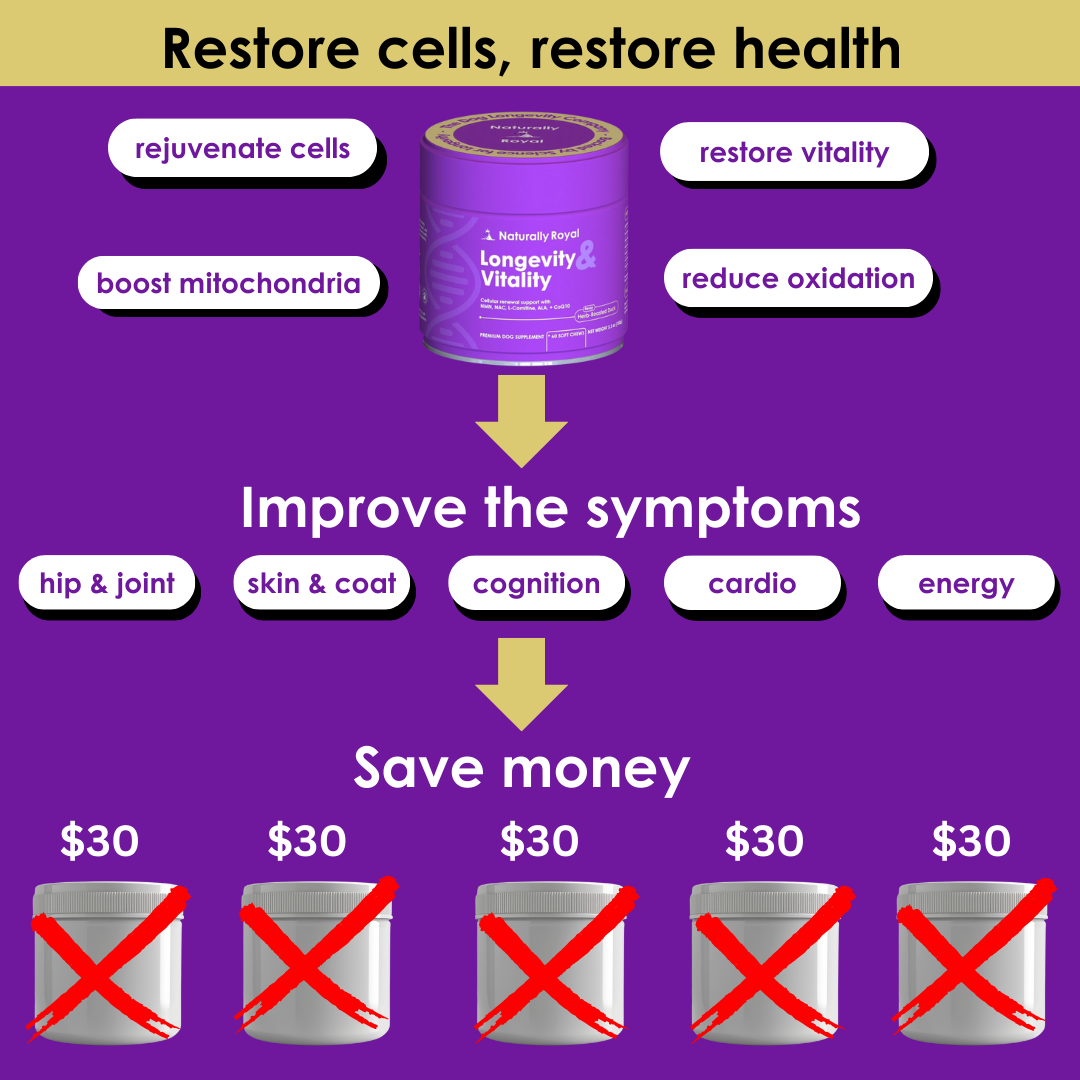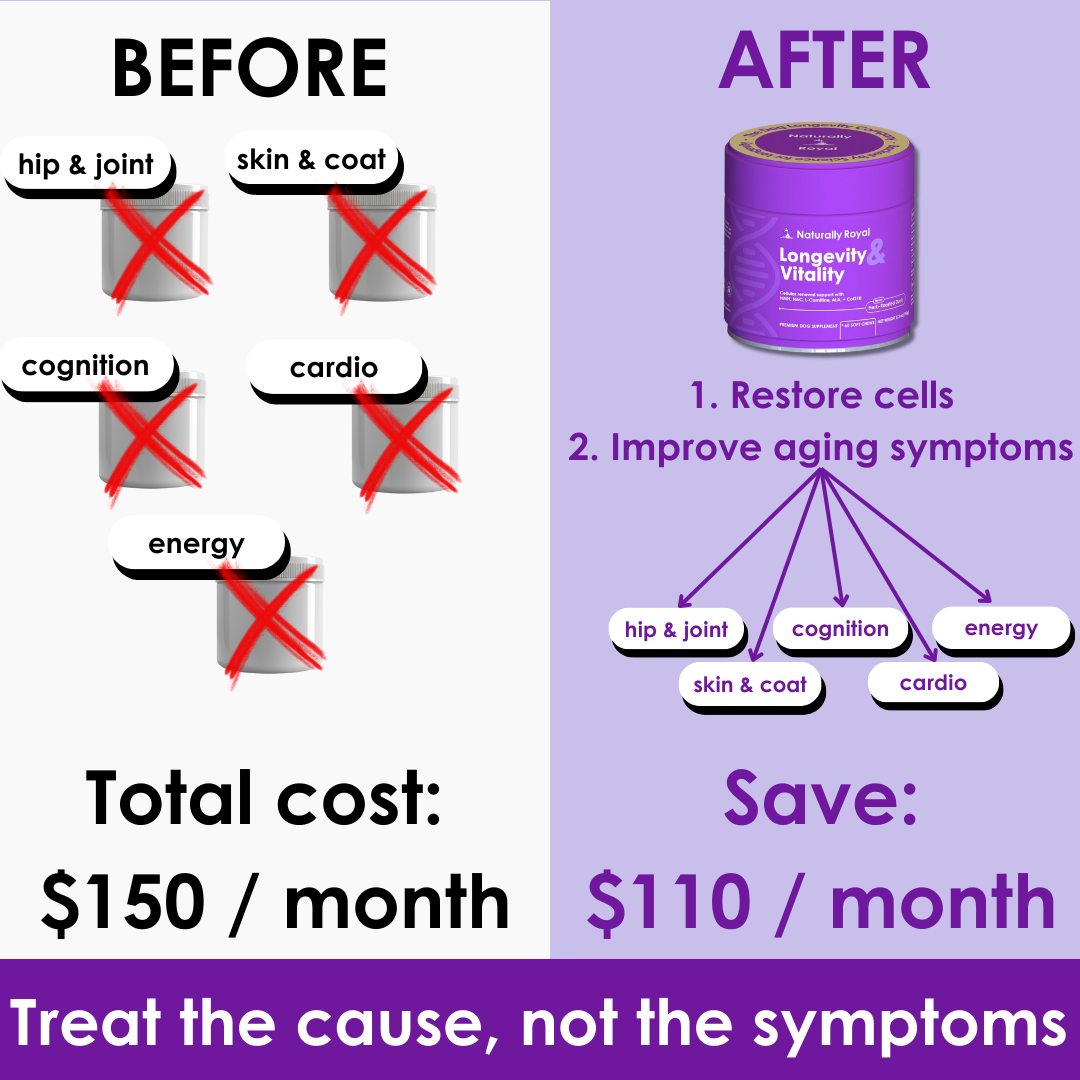Maintaining Muscle Mass and Why It's Important
As dogs age, they naturally experience muscle loss, which can affect their mobility, overall health, and quality of life. Maintaining muscle mass is crucial for ensuring your dog remains active and healthy in their senior years. Let's explore the importance of muscle maintenance and provides practical tips for keeping your aging dog's muscles strong:
Why Maintaining Muscle Mass is Important:
-
Improved Mobility:
- Strong muscles support joints and bones, enabling better movement and reducing the risk of injuries.
- Muscle mass helps maintain balance and coordination, preventing falls and related complications.
-
Enhanced Metabolism:
- Muscles play a vital role in metabolism, helping to regulate weight and energy levels.
- Maintaining muscle mass can prevent obesity and related metabolic diseases such as diabetes.
-
Overall Health and Longevity:
- Muscle health is linked to overall well-being and longevity. Dogs with better muscle mass tend to live longer and healthier lives.
- Strong muscles support vital organs, including the heart, improving cardiovascular health.
How to Maintain Muscle Mass in Aging Dogs:
-
Regular Exercise:
- Daily Walks: Ensure your dog gets regular walks to keep their muscles active. Adjust the intensity and duration based on their age and health.
- Strength Training: Incorporate exercises like climbing stairs, walking on an incline, or using resistance bands designed for dogs.
- Playtime: Engage in activities that encourage movement, such as fetch or tug-of-war.
-
Balanced Diet:
- High-Quality Protein: Provide a diet rich in high-quality protein to support muscle repair and growth. Look for dog foods with lean meats, fish, or specially formulated senior diets.
- Supplements: Consider supplements like fish oil, glucosamine, and chondroitin, which support muscle and joint health. Always consult your veterinarian before adding supplements to your dog's diet.
-
Physical Therapy:
- Hydrotherapy: Water exercises can be excellent for maintaining muscle mass without putting too much strain on joints. Swimming or underwater treadmills are great options.
- Massage: Regular massages can improve blood flow to muscles, promoting healing and relaxation.
-
Regular Veterinary Check-Ups:
- Health Monitoring: Regular check-ups can help monitor your dog's muscle mass and overall health. Early detection of muscle loss or related issues allows for timely intervention.
- Personalized Care: Your vet can recommend specific exercises, diets, or treatments tailored to your dog's needs.
Conclusion:
Maintaining muscle mass is essential for the health and longevity of aging dogs. Through regular exercise, a balanced diet, physical therapy, and routine veterinary care, you can help your dog stay strong and active well into their senior years. By prioritizing muscle health, you'll ensure your dog enjoys a better quality of life and more precious moments with you.


